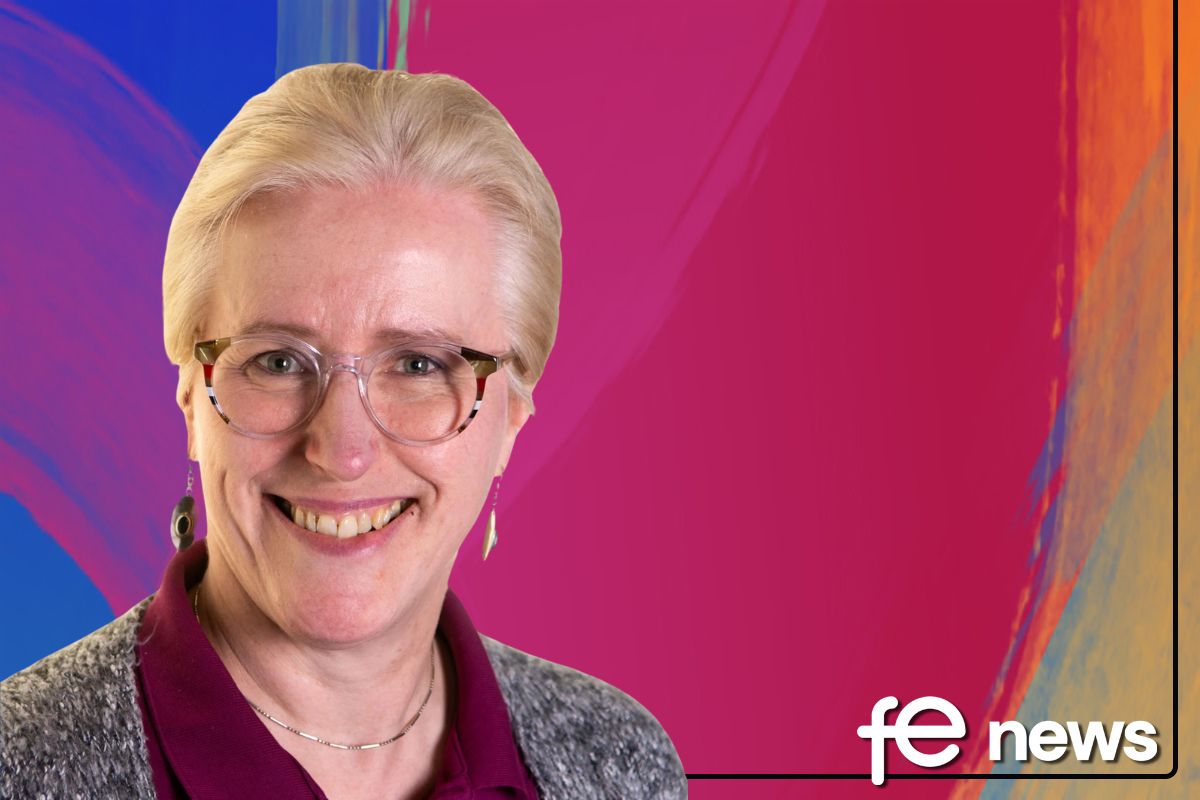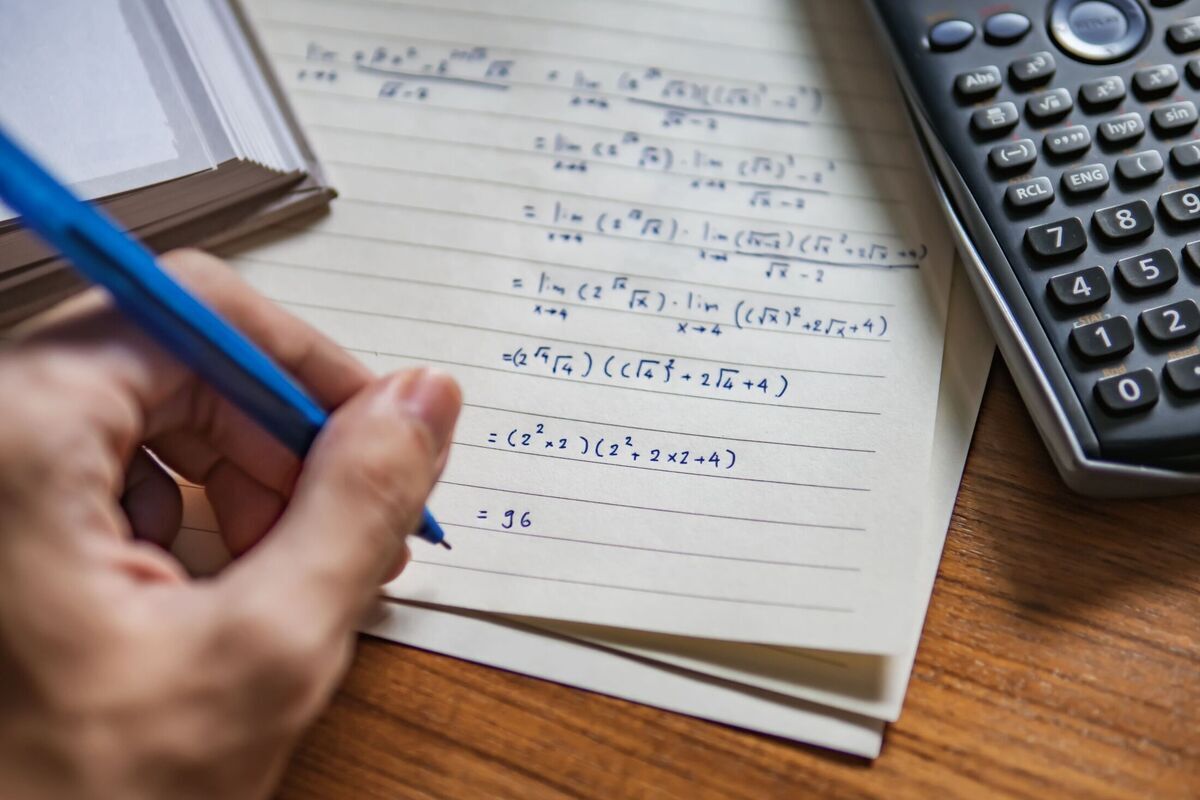Is it time for a maths GCSE designed for adults?

Most students who resit GCSE maths don’t gain a grade 4 or better by age 19. Stella Dudzic argues for a new type of qualification – an ‘aGCSE’ which has more suitable content and assessment for post-16 students.
MEI has recently called for an ‘aGCSE’ (adult GCSE) in maths to provide an alternative for students working towards a level 2 qualification in maths post-16.
The condition of funding for students without a standard GCSE pass in maths and English by the end of KS4 has over time led to a welcome increase in students gaining level 2 qualifications in these essential subjects by age 19. Students with these qualifications have many more opportunities open to them, but success rates are variable, depending on students’ prior attainment.
The chart below shows percentages of students succeeding in getting a level 2 maths qualification post-16, by KS4 GCSE maths grade. Results in recent years have been affected by Covid-related grading arrangements of course, but it’s clear that students with lower grades at GCSE at age 16 have a slim chance of achieving a level 2 maths qualification by age 19 despite two further years of study.
Even for students with a grade 3 at age 16, usually less than half succeed by age 19 and for those with lower grades, it’s less than one in five.

The minimum percentages of total marks needed to achieve grades 1 to 3 at age 16 in the summer 2023 Foundation tier maths GCSEs are below 50%. The grade boundaries vary and reflect variations in the difficulty of the papers; the overall difficulty of getting a particular grade is kept the same for all specifications.

Data from exam boards
Students with a grade 1 or 2 in maths GCSE at age 16 have already spent years in maths lessons; they may have got 30% or less of the available marks in their GCSE exams and they know that they couldn’t do most of it. Students with a grade 3 may have got less than 50% of the available marks and lack confidence as a result.
Having achieved grade 1 to 3 at GCSE, they have secured a level 1 qualification. There is an expectation that they progress to level 2 when they continue with maths post-16 The available qualifications for maths are Functional Skills level 2 or GCSE. Most continue studying the GCSE, partly because of its currency with employers, but also because the assessment is perceived as more accessible to students working at level 1.
As a result, students redo GCSE, sitting a total of 4½ hours of exams in the hope of doubling the mark they got at age 16 in order to gain a standard pass. It is little wonder that so many face repeated disappointment.
At MEI we translated this challenge for students into a challenge of qualification design: Could we design a rigorous qualification to ensure students gained appropriate mathematical understanding and skills, yet with a curriculum and assessment to better help resit students succeed?
In 2019, with funding from the Nuffield Foundation MEI developed this new curriculum for post-16 GCSE students. Our research convinced us of the importance in the design of two things:
- Students learning maths post-16 should have the opportunity to improve their confidence in maths
- They should be able to gain a qualification that will open doors for them.
There are several reasons for the inclusion of a stepping stone element. It assesses students on the underpinning skills for the rest of the assessment and is designed to be taken part-way through the course with the marks counting towards the final grade. The requirements of assessment affect teaching and we wanted to ensure that students have the underpinning skills which are important not only for success in exams but also for being able to use mathematics confidently in future life.
Diagnostic information from this paper can be provided to colleges and schools. Succeeding in this element of the assessment will improve student confidence as well as checking that they are ready for the rest of the assessment at the end of the course.
The content of the proposed qualification was informed by a review of relevant research and similar qualifications, including some from other countries. We started by outlining the mathematical skills which adults need and grouped them under four applied areas. The table below illustrates the kinds of skills students should gain.
We then reviewed the content of foundation tier GCSE to focus on the content which supports the mathematical skills of adult life, adding content to support financial understanding.
| Financial understanding | Working with measures and shape |
| Understanding discounts in the sales Understanding household bills Estimating the cost of weekly food shopping Splitting a restaurant bill Shopping around for the best mobile phone deal Comparing prices for differently sized packages Budgeting for a holiday or major purchase Personal budgeting Managing a budget at work Understanding interest rates when saving and borrowing | Being able to read a measuring scale Knowing your height and weight Converting between imperial and metric units Buying enough paint to decorate a room Using shapes in designing a garden or craft project Making and interpreting measurements to decide whether a piece of furniture or household appliance will fit in a given space Understanding a map or scale drawing Understanding measurements relating to personal fitness and health Giving the right quantity of medicine to children |
| Planning activities | Understanding quantitative information |
| Estimating time needed for tasks Planning a schedule Understanding staff shifts on a rota Planning a meal or party for a large number of people Giving and following directions Understanding journey times Understanding a map or scale drawing Understanding timetables | Recording numerical information accurately so others can understand Making sense of statistics in the news Interpreting the results of an opinion poll and understanding why different polls may produce different results Understanding results of elections Understanding food labels Understanding statistics relating to personal fitness and health Understanding risk in the news in relation to health |
GCSE qualifications have a well-recognised name and are currently taken by the vast majority of post-16 students taking maths, but the content of the GCSE is determined by the National Curriculum, which is designed to meet the needs of students up to the age of 16. Ofqual’s conditions for GCSEs prevent any changes to content and also prevent the inclusion of a stepping stone within the qualification so our proposal could not be a GCSE, even though the standard would be equivalent.
IGCSEs (International GCSEs), however, are widely recognised as being equivalent to GCSE despite not meeting GCSE conditions. They are designed for international schools but also taken in independent schools in the UK. They are not subject to the same regulations as GCSE, but are regulated by relevant exam boards.
We are suggesting that, in a similar way, an adult GCSE, or ‘aGCSE’, should be permitted and available for students working towards a level 2 qualification in maths post-16. We have had good interest in this possibility from the FE sector. All it needs is for this to be permitted as a funded alternative for resit students.
By Stella Dudzic, Director for Curriculum and Resources at MEI.
Stella taught for 22 years in secondary schools, including nine years as head of department, before joining MEI in 2006. Her current role includes working on the content and design of new qualifications and overseeing the development of teaching resources.











Responses